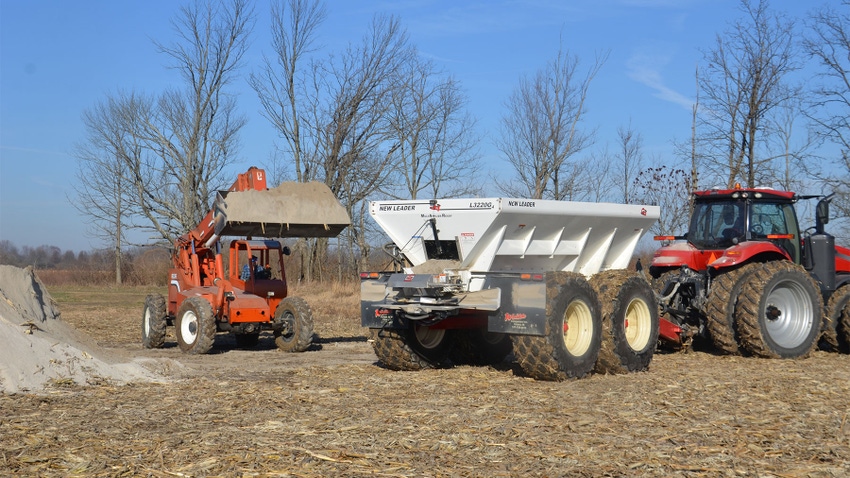September 27, 2023

My son wants to spread gypsum for sulfur on all land going to corn. Some fields are in the 5.7 to 6.0 pH range and due for lime. Should we apply both? Or hold off on one or the other for a year?
The Indiana certified crop advisers panel answering this question includes Steve Gauck, regional agronomy manager for Beck’s, Greensburg; Bryan Overstreet, Conservation Cropping Systems Initiative agronomist, Valparaiso; Dan Quinn, Purdue Extension corn specialist; and Dan Ritter, central region agronomist, Dairyland Seed.
Gauck: The first thing I look at on a soil test is the pH range. It drives nutrient availability and even herbicide effectiveness. To maximize yields, I like to start by getting pH levels correct. A lime application will give you one of the best returns on your dollar spent. So, I would target a lime application this fall to correct pH levels. Corn is more forgiving than soybeans on low pH, but I would still target getting fields over 6.3.
Why do you want to use gypsum? Many times, gypsum is used in heavy clays to increase calcium levels and lower magnesium levels to correct base saturation. If your base saturation on calcium is above 70% and magnesium levels are below 15% to 17%, you may not need gypsum. If you are using gypsum for sulfur, consider applying sulfur with your nitrogen program throughout the season.
Overstreet: If the field is due for lime, make sure it is spread. Over the past few years, research has shown the addition of sulfur has been very beneficial to corn and soybeans. Gypsum can be that source. Ammonia sulfate can also be a sulfur source going into corn.
Quinn: With current pH levels being 5.7 to 6.0, it will be important to apply lime first to correct the pH. Gypsum is still a good application method to supply sulfur needs to the crop. However, having pH too low can impact nutrient availability for many essential macro- and micronutrients for corn. Gypsum does not impact pH in fields. Only lime impacts pH.
Ritter: If you can afford the cost, I would apply both gypsum and lime. There is no agronomic reason not to apply both amendments. If you need to wait on one or the other, I may wait on gypsum. The other option would be looking at applying a sulfur source in-season next year.
You May Also Like




